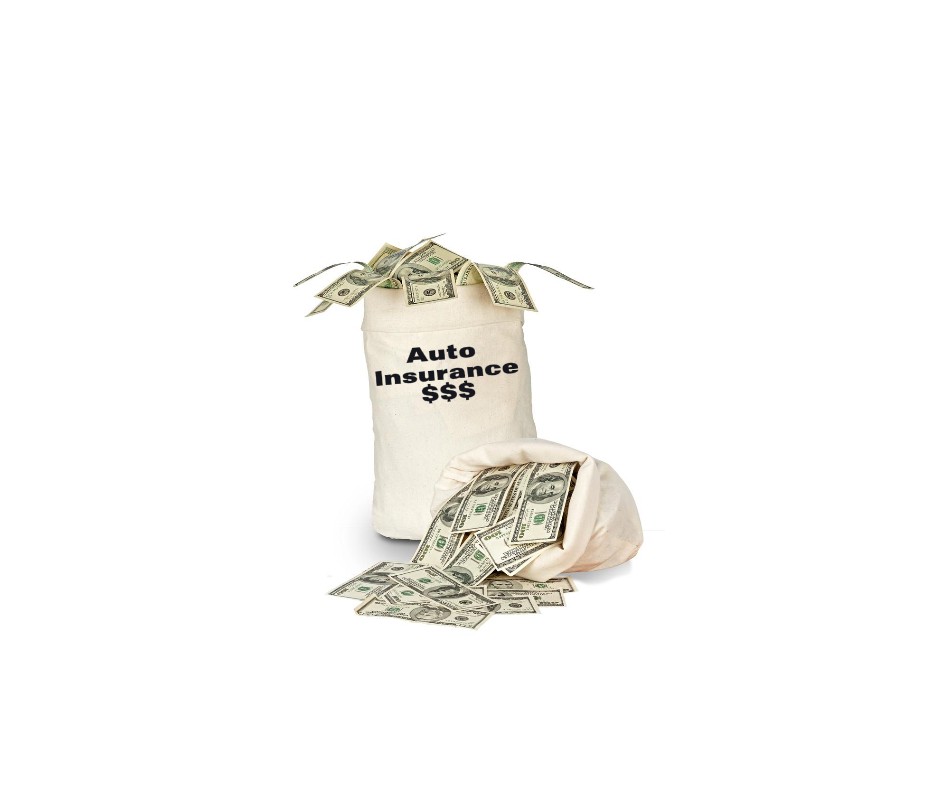
IS THERE GREED? THE STIGMA OF PERSONAL INJURY CASES
You should never feel embarrassed if you must make a personal injury claim. When someone has injured you in a car, motorcycle, 18-wheeler or boat crash, you are a victim. Louisiana law provides protection and rights for you. Remember, you did not ask to be involved in a crash, nor to suffer injuries, incur medical bills and possible have lost wages. So what are your rights?
When someone was negligent and has injured you, you have certain rights. In Louisiana, our state laws provides that you have the “right to be made whole.” What does “made whole” mean? It is simple – putting you in the place you were in moments before the crash:
• Repair or replace your car for fair market value
• Pay you medical bills for the past and if there are any anticipated future bills, provide you money to cover those expenses
• Pay your lost wages
• Compensate you for your pain and suffering
That seems fair, right? Cover your out-of-pocket losses. Make sure you don’t miss a pay check. And since there is no way to know the value of your pain, a judge or jury decides that, not you.
So where do all of these big numbers come in? With big injuries – life altering and career ending injuries that required lots of past medical treatment and have a need for future medical treatment. Wage losses – if you are not able to return to work or can’t maintain the same job that you once had because of your injuries from the crash, those numbers add up quickly. For example:before the crash you were making $40,000 per year and are 30 years old. You have a work life expectancy of 42 more years. But after the crash and due to your injuries and physical/mental limitations, you are only able to work part-time and can make $20,000 per year… let’s do the math:
$40,000 - $20,000 = $20,000 per year loss
$20,000 per year loss x 42 years left of work life = $840,000!!
See how quickly life can change? Because someone was not paying attention you are injured. You have medical bills; you have lost wages; you have a wrecked car; you are the one who misses out on opportunities because of this crash; you hurt both physically and mentally. So is it wrong to ask the at fault driver’s insurance company to help “make you whole?” NO. It is your right to do so. And what is the reason people have insurance? In case something happens.
Will the insurance company immediately treat you fairly? Do you know the full extend of your injuries and will you know if there will be any permanent limitations shortly after the crash? The answer to both is NO. This is why you should never rush to decide until you have spoken with a skilled personal injury attorney, like me.
You are not greedy for asking to be treated fairly. Who is looking to not pay you a fair amount without someone there to protect you? The insurance companies. The insurance companies are always demanding rate increases and blaming people like you, those who have been injured, as the reason for those rate increases. Many auto insurance companies have reported profits in the billions. Several of the top insurance companies pay their CEO’s tens of millions of dollars in bonuses above their base multimillion dollar salaries. I wonder what would happen if they were in your shoes, would they also want to be treated fairly? They would demand to be treated fairly.
While profitability is key for sustainability of these insurance companies, it is critical to remember the balance between corporate gains ($$$) and your interests. These significant profits year over year and their significant rate increases don’t match with the narrative the insurance companies are spreading around. You, the injured person who is just asking to be treated fairly, are not the reason rates are continuing to rise.
Remember, you are making an insurance claim for injuries and losses you did not ask to receive or incur. You just want to be treated fairly. You are not suing the person, you are pursing a claim against the at fault driver’s insurance policy. If you file suit, guess who will pay the dollar amount the jury says you are entitled to? Insurance companies. If you settle with the “other side” guess who pays that dollar amount? The insurance companies. Drivers buy insurance in case they are ever in a crash and injure someone. It is the agreement that we all have with our auto insurance companies – if I am responsible for injuring someone, I want my insurance company to protect me by covering the other person’s losses up to the amount of coverage. The insurance company agrees by accepting your premium and providing you insurance coverage.
Bottom line, you are protecting yourself by asking for what is fair. The insurance companies are only interested in profits and not you, so they will do all they can to shortchange you and pay you less than what is fair. Don’t be intimidated by ads that say plaintiffs are greedy. Make sure you are treated with respect and get the fair amount you deserve.A Few Reasons You Should Not Represent Yourself
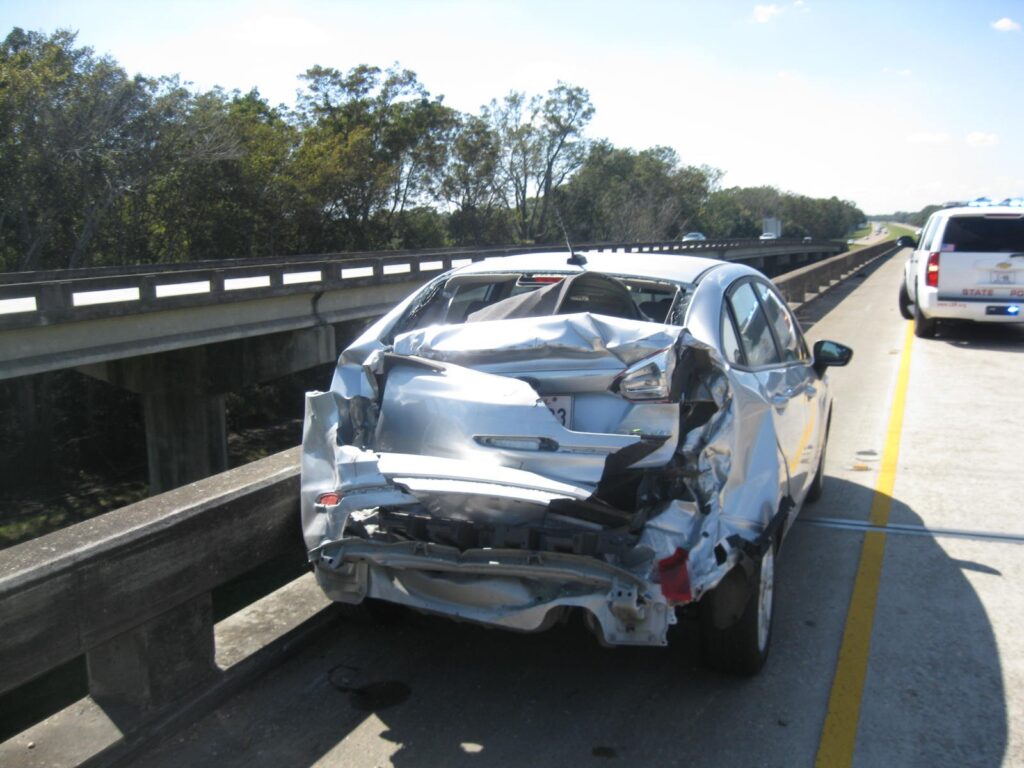
When you have been injured, you might think about representing yourself. Most people think they can handle their claim themselves. Sure it seems simple – call the insurance company, explain what happened and then they will send you money. Or so you think. However, personal injury claims are not so straightforward and representing yourself may leave thousands of dollars or more out of your pocket.
Here is why hiring a skilled personal injury lawyer is critical in maximizing your recovery.
- UNDERSTANDING THE LEGAL PROCESS
Personal injury recoveries involve more than simply filing a claim. There are complex rules about liability, evidence, damages, and timelines that steps must be taken. We have years of education and experience in navigating this complicated minefield. Without this skill-set and experience, it is easy to overlook important issues, facts, and possibly deadlines. If you skip any of these steps, you may have lost your right to recover and stuck with medical bills and lost wages.
- PROPERLY VALUING YOUR CLAIM
One of the biggest mistakes that people make when representing themselves is not properly determining the value of their claim. We know how to calculate the value of your claim, a value that is made up of: lost wages, past medical bills, future medical bills, pain and suffering and more. Without qualified legal guidance, you may unfortunately agree to a number that is not just low, but extremely unfair.
- DEALING WITH THE INSURANCE COMPANIES
Insurance companies are not your friends and do not want to treat you fairly or pay you what is a fair settlement amount. Insurance companies want to minimize what they pay you. We want to maximize what you recover. Adjusters are trained to be aggressive negotiators and will use tactics to bully or pressure you into thinking your case is not worth its true value and into accepting a lower offer. We are experienced to know how these adjusters operate and will fight to ensure you are not taken advantage of and to maximize your personal injury recovery.
- PROVE WHO IS AT FAULT AND THE VALUE OF YOUR PERSONAL INJURY CLAIM
Showing who is legally responsible for your damages, injuries, and demonstrating the extent of your damages is key in your personal injury case. We gather your medical records, police reports, witness statements, meet with you to understand how you have been affected by the crash and resulting injuries, and when needed, hire experts to support your case. Having the resources and knowledge to build a strong personal injury case while trying to represent yourself is extremely difficult, but hiring us is easy.
- MAXIMIZING YOUR COMPENSATION
Our goal is to maximize your recovery, what you walk away with after settlement. Studies show that injured people who hire attorneys recover significantly more than those who represent themselves. This is even after deducting attorney’s fees and case expenses.
- REDUCES STRESS YOUR STRESS AND LETS YOU FOCUS ON RECOVERY
After being in a crash, the last thing you want is the stress of handling the claim yourself. Your focus should be on your recovery, not dealing with an insurance company and constantly wondering if you are being treated fairly. Let us handle the claim, explaining the law, what is fair, and maximizing your recovery so you can heal.
- NO UPFRONT MONEY IS NEEDED TO PAY THE ATTORNEY
We do not charge our clients any upfront costs. We work for you on a contingency fee basis, meaning we are paid an agreed upon percentage of the recovery at the end of your case.
Remember, if you have been involved in a crash, we are here to protect, advise, and fight for you, so we can maximize your recovery. Car crashes, motorcycle crashes, 18-wheeler crashes happen. When they do, we are here to help the victims maximize their recovery. We are here to help. We are a personal injury law firm in downtown Lafayette, Louisiana. For more than 50 years, we have been able to maximize results for our clients either through settlement or victories in the courtroom. Through teamwork and communication, I am able to effectively and efficiently maximize my client’s recovery. No two cases are exactly alike, and you should not be treated as a number on an assembly line. Hire an attorney who knows you by name and will spend the time with you to understand how your life has been affected, explain the law that applies to your case, the game plan, and to answer all of your questions. We work FOR our clients.
Don’t Speak To The Insurance Company
When you hire a personal injury attorney, you are hiring someone who will protect you, inform you of the law or laws that apply to your case, fight for you to recover the most you are entitled to recover and to deal with the insurance companies. I tell my clients, “Your job is to get better by following your doctor’s recommendations and treatment schedule and my job is to handle everything else.”The client’s role is simple:
• Be honest
• Communicate with your attorney
• Show up for all doctor’s appointments and communicate with your providers
• Focus on recovery
• When you have questions, ask your attorney
The attorney’s role in a personal injury case is very simple:
• Be honest
• Communicate with client, insurance adjusters, defense attorneys, doctors, experts, witnesses and more
• Learn the values of the insurance policies that apply to the case
• Answer all client questions
• Explain the applicable laws to the client’s case
• Discuss strategies, strong points and weak points of the case
• Plan on how to deal with the weak points in the case (every case has at least 1)
• Determine the value range of the case
• Aggressively work to maximize the client’s recovery either through settlement or trial
• And that is just the beginning of all the work we do for our clients.
Once we are hired, our work begins. One of the first things that we do is contact all insurance companies and let them know we are representing you, our client, and that they are to only speak with us.
What happens when an insurance company calls our client after they have received this letter? We tell our clients that if this happens, tell them “Richard Kennedy is representing me. Call him,” then hang up. Depending on what the insurance company is trying to accomplish by speaking with a client who hired Richard Kennedy as their personal injury attorney, they may be breaking ethical rules, Louisiana law, or acting in bad faith.
Remember, if you have been involved in a crash, we are here to protect, advise, and fight for you, so we can maximize your recovery.
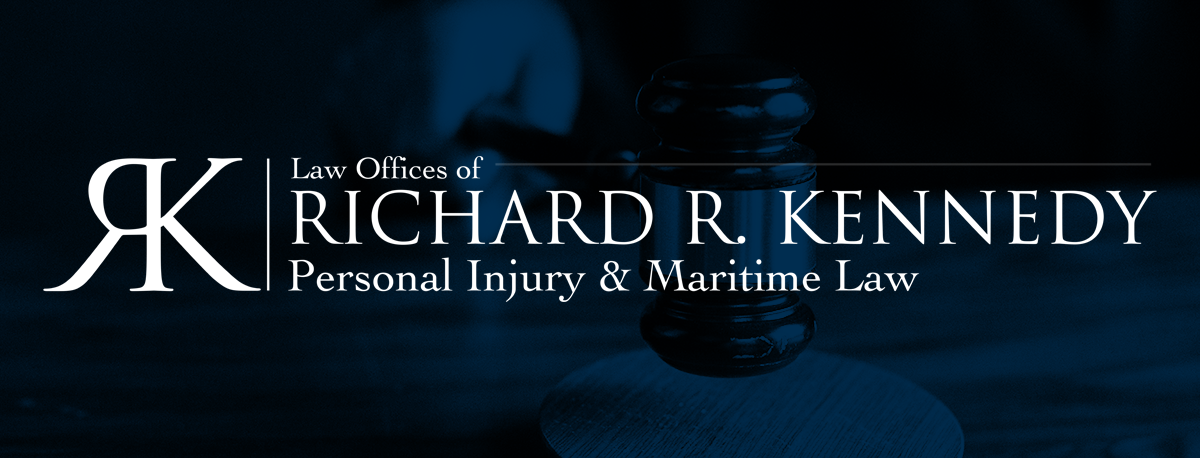
What does it mean to settle your personal injury case?
When you settle your personal injury case, it means that you and the defendants agree to resolve your case without going to trial. Most often it involves a single lump sum payment in exchange for dismissing all claims for past and future medical bills, lost wages, and general damages.
Things to consider when a settlement opportunity arises:
• Closure: Once you settle, your case is over. You can’t reopen the case if you change your mind to ask for more money. Even if you learn of new medical issues or a surgical recommendation that did not exist before.
• Settlement is achieved through negotiations; it is a process most of the time. Often it is not agreed upon on the same day an offer is made. Be patient.
• Benefits: By settling your case you have several benefits that include removing the uncertainty of the “how’s:” How long will it take for my case to end? How much money will it cost me to get through trial and a possible appeal? How much money will the jury award me? When settling with an insurance company, they have 30 days to pay the agreed upon amount.
So why settle? Settlement does provide a quicker resolution and guaranteed compensation. Trials can be filled with uncertainty – what will the jury think of my case? How much will it cost to try my case (expert fees, depositions, trial exhibits, and the like). But many times, you can settle your case for a very fair amount before you have to incur many of the expenses that are associated with trial. We will guide you through this process, explaining the pros and cons of accepting a settlement offer, providing advice if an offer is fair or not based on our years of experience in handling personal injury claims and based on the latest research available so you have an idea of what juries are awarding people in very similar situations.
PASSING ON THE LEFT IN LOUISIANA
Who is at fault when one driver is passing another on the left? That depends on the specific facts of that case. Passing on the left is considered a dangerous maneuver, and a driver of a passing vehicle is held to a higher degree of care. The left turning driver and overtaking driver collisions represent the classic comparative fault scenario. In the case of a crash between the two, the law imposes a duty on both drivers. The driver turning left must use their turn signal and not turn until it has been determined it is safe to do so.
Facts needed when a left turning driver collides with a driver passing them on the left
Imagine a driver slowing down to make a left turn and at the same time another driver is attempting to pass the “slow moving” car in front of them. The two collide. Who is at fault? That is very fact specific. Facts needed:
- Did the lead vehicle have working brake lights and turn signals?
- The following vehicle, how far back was it?
- Did the lead vehicle put their blinker on to indicate a left turn?
- How many cars was the following vehicle trying to pass?
- Was the following vehicle completely in the oncoming lane of traffic?
- Did the following vehicle blow its horn?
Conclusion:
Proving fault in such cases can be complicated and it is fact driven. Often, stories do not match and there is some confusion of fact. Each case is fact intensive and must be properly evaluated. Documentation is key in such cases. When possible, taking photos at the scene are extremely important because it can show the point of impact based on where the debris falls on the road. Having a skilled attorney working with you is necessary to explain the law, its complexities, and help to maximize your recovery. If you have questions, we are here to help you. Let us maximize your recovery.
Injured in a crash? Now what? Part #1
Filled with adrenaline and uncertainty, you have just been involved in a crash and don’t know what to do. This post will help provide a general guide for common steps that you should take.
- Are you injured? Your body is in the fight or flight stage and you may not be aware of all of your injuries as your mind and body are working to protect you and get you out of this situation. But here are a few things to check. Are you able to move your arms and legs? Do you feel pain anywhere? Are you scared to move or get out of your car? Depending on your answer, it may be better to stay in your vehicle, assuming it is safe to remain inside.
- Call 9-1-1. Report the crash and notify the operator of your location, any injuries that you or your passengers may have suffered, and if you have been able to check on the other driver, report any injuries they may have suffered. If you or others have been injured or if you are worried about injuries, please request the ambulance.
- Documentation. If you are able to safely move outside of your car, please take pictures of your car, the other car, the area where the crash happened, and anything else that you believe to be important.
- Move your car? If instructed by the 9-1-1 operator to do so, but your car or the other car is not able to be moved, please let the operator know. If you are on a highway, state law requires you to move your vehicles to the side, if you can do so. If you are on any other roadway, you may consider moving to the side or to a parking lot to avoid further harm. Before doing so, make sure to take pictures of both cars and their placement on the roadway.
- Police. When the police arrive, be honest and tell them what you remember happening. You will also be asked to write a statement, if your condition allows. This is not a school essay, but just a chance to write a short statement that may include the direction you were driving, your actions before the crash (were you stopped for traffic or a light or driving straight), and what did the other driver do or not do?
- Ambulance.If you have any concerns, please get medical attention immediately. Let the paramedics check you out. They are trained professionals and will make sure that if you need medical attention, you will get help immediately.
This is just the beginning of the journey. Come back for Part #2 where we will discuss starting an insurance claim, the importance of hiring a skilled personal injury attorney and more.
Car crashes, motorcycle crashes, 18wheeler crashes happen. When they do, we are here to help the victims maximize their recovery. We are here to help. We are a personal injury law firm in downtown Lafayette, Louisiana. For more than 50 years, we have been able to maximize results for our clients either through settlement or victories in the courtroom. Through teamwork and communication, I am able to effectively and efficiently maximize my client’s recovery. No two cases are exactly alike, and you should not be treated as a number on an assembly line. Hire an attorney who knows you by name and will spend the time with you to understand how your life has been affected, explain the law that applies to your case, the game plan, and to answer all of your questions. We work FOR our clients. Injured and have questions?

Do I have a personal injury case?
You have been involved in a crash and have countless questions. You are not certain where to begin and what are the right words to use. Don’t worry, you have a friend on this journey, me. What are some of the most common questions? Here is a list of just a few common questions I hear:
- What kind of attorney and I looking for? Is it an “accident attorney,” “car accident attorneys,” “car accident lawyer,” “car crash lawyer,” or “personal injury attorney.”
- My car has been damaged, how do I get it fixed and what do I do for a car while mine is being repaired?
- I am injured and not sure where to go or what to do?
These are just three of the most common questions that I am asked by friends and potential clients. But questions range from medical treatment to vehicle repair, to lost wages. Then “who will pay for all of this?!”
But before we can answer many of these questions, we first need to look at several items.
- Louisiana law provides that all drivers owe themselves and all others a certain duty of car, to drive safely, responsibly, and to avoid harming others. In your situation, is there a law that protects you?
- Did the other driver breach that duty? Basically, did the other driver break the law and hit you? An example of this would be, you had a green light and the other driver had a red light, but ran the red light and crashed into you.
- Because they broke their duty owed to you, did you suffer harm?
- Do you have any damages like medical bills, lost wages, physical pain, etc.?
- What evidence and witnesses do you have to support your case?
A police crash report generally has most of the initial information needed. Once we have this information, more questions will need to be answered. Each case has many of the same questions, but the answers in each case can be different. Understanding the types of insurance coverage the other driver may have, what coverage you have and that may be available to help. Making sure you are getting the medical evaluation and treatment you need and that you understand your options is critical to maximizing your recovery.
If you have been injured and have questions, call us now. Don’t delay. The sooner you can understand your rights, how the process works, what you need to do and meet with us, the better your experience and end result will be.
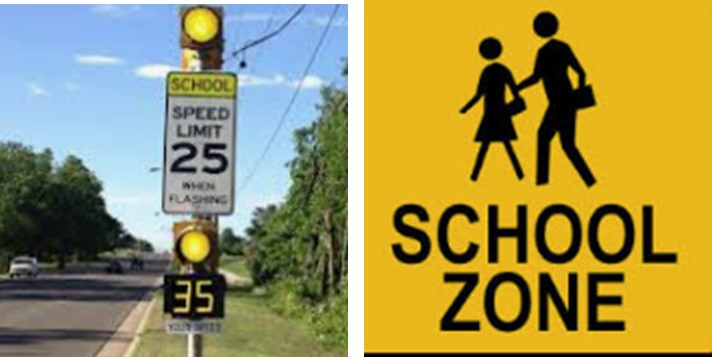
DRIVING IN A SCHOOL ZONE WHEN SCHOOL IS NOT IN SESSION
Do you know what speed to drive in a school zone when school is not in session?
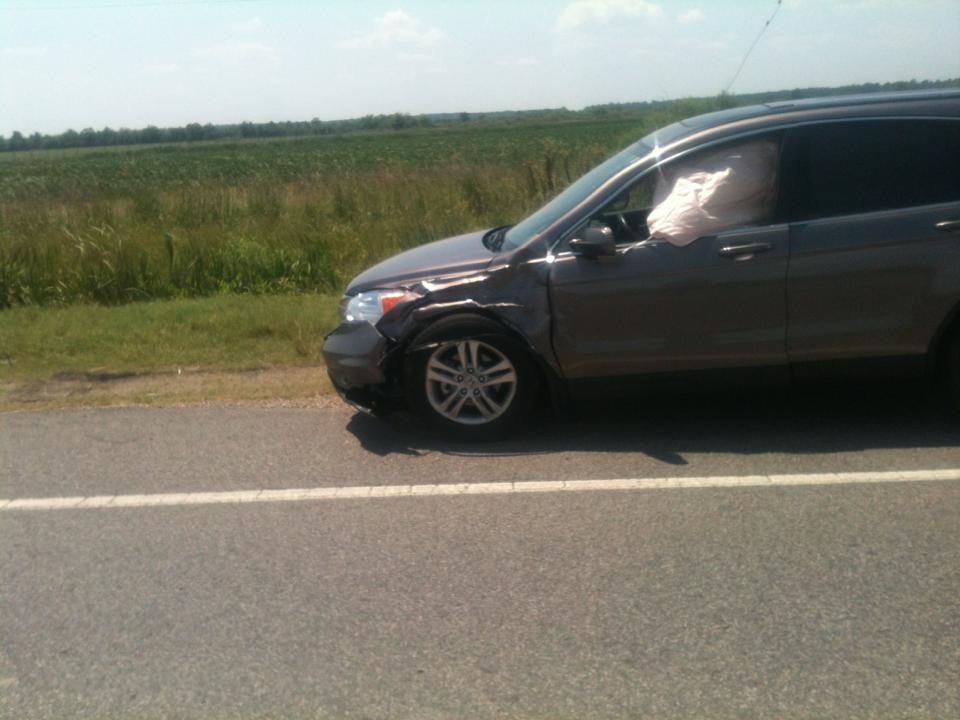
The Importance of Preserving Evidence in Personal Injury Cases
If you’ve been involved in a crash, understanding the importance of preserving evidence can significantly influence the outcome of your personal injury claim. As a personal injury attorney with years of experience, I’ve seen many cases where properly preserved evidence made the difference between a successful compensation claim and a disappointing outcome.
Why Evidence Preservation Is Crucial
Evidence is the foundation of any legal claim, particularly in personal injury cases. It helps establish the facts, demonstrates liability, and quantifies damages. Preserving evidence ensures that the details of the wreck are maintained accurately, which is crucial for proving your case in court or in negotiations with insurance companies.
Types of Evidence You Should Preserve
- Photographic and Video Evidence: Always try to capture clear photos or videos of the crash scene, your injuries, and any damages. This visual evidence can be compelling in demonstrating the severity and impact of the incident.
- Physical Evidence: This includes any physical objects that played a role in the accident, such as defective products, clothing, or equipment. Keep these items in the same condition they were right after the accident.
- Documentation: Gather all relevant documents, such as medical records, police reports, and witness statements. These documents provide critical details about the accident and subsequent damages.
- Electronic Data: In today’s digital age, electronic data from smartphones or GPS devices can also serve as valuable evidence. Such data might include text messages, call logs, or location data at the time of the accident. And don’t forget about dashcams!!
Steps to Preserve Evidence
- Act Quickly: Evidence can degrade or be lost over time. Begin collecting and preserving evidence as soon as safely possible following an incident.
- Store Safely: Keep physical evidence in a secure location where it cannot be tampered with or deteriorate.
- Document Handling: Maintain a record of all individuals who handle the evidence from the time of the accident to its presentation in court to avoid claims of tampering or contamination.
- Seek Legal Assistance: Consult with a personal injury attorney early in the process. An experienced lawyer can help in effectively preserving and presenting evidence, ensuring that nothing crucial is overlooked. Make sure to bring me copies of all evidence you have been able to capture.
Legal Expertise in Evidence Preservation
A skilled and experienced personal injury attorney can provide essential assistance in preserving and collecting evidence. They can also help in obtaining evidence that may be difficult for you to access on your own, such as surveillance footage or private records. Moreover, an attorney will ensure that all evidence is gathered legally and is admissible in court.

Injured in a crash? Do you need to hire a Personal Injury Attorney?
🚗 Were You Involved in a Crash-? Here’s Why You Should Consider Hiring a Personal Injury Attorney! 🚑
If you’ve recently been in a car crash, navigating the aftermath can be incredibly stressful, when you’re trying to handle it alone. From medical bills piling up to dealing with insurance companies, it’s easy to feel overwhelmed. That’s where a personal injury attorney can really help. Here’s why:
- Expert Guidance: Personal injury attorneys know the laws that apply to car crashes and can guide you through the legal maze and help you understand your rights and options.
- No Upfront Costs: We work on a contingency fee basis, which means you don’t pay attorney’s fees unless you win your case. We handle the upfront costs of litigation, so you can focus on your recovery without added financial stress.
- Maximizing Your Compensation: We know how to accurately assess the compensation you deserve for medical expenses, lost wages, pain and suffering, and more.
- Dealing with Insurance Companies: Insurance companies often aim to minimize what they pay out. We will handle negotiations on your behalf, ensuring that you aren’t taken advantage of and work to maximize your recovery.
- Peace of Mind: Having a knowledgeable professional on your side can give you the peace of mind to focus on healing. Knowing your case is in good hands can be a huge relief during such a difficult time.
These are just the highlights. To learn more, please let us know what questions you have and we would be happy to provide you with answers. Not sure if you have a case? Let’s meet so that we may learn more and provide you with an honest opinion.
